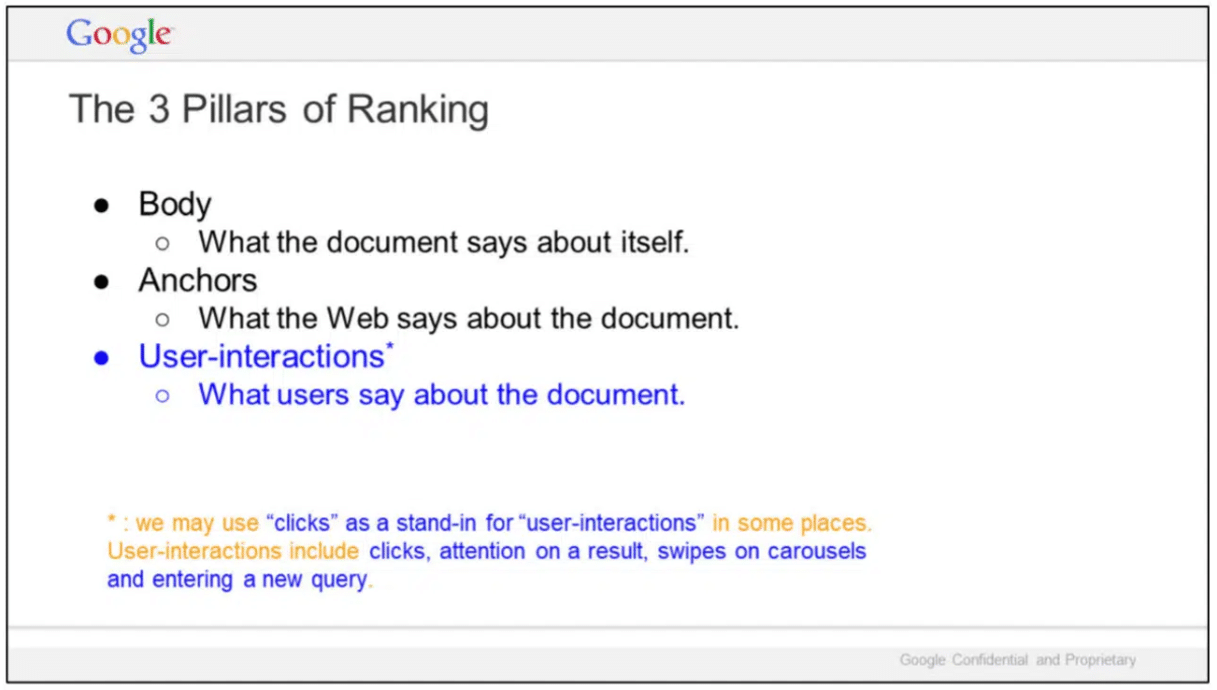This primer is designed to help you understand the basics of SEO and how it can benefit your business. Whether you’re just getting started or looking to improve your existing strategy, these insights will guide you through the essential aspects of SEO.
1. It’s Not Rocket Science
Anybody can read Google’s very own published resources online, follow them, and obtain positive results with SEO. Yes, it really is that simple. However, there are important nuances to keep in mind…
2. It Requires Consistent Effort Over Time
If you want to be healthy in real life, you must eat right, go to the gym, and get enough rest – consistently. You can’t just throw $5K at a personal training program, do it for a few months, and expect to stay healthy forever afterward without doing anything else. SEO is precisely the same; you can think of it as your “online health.” You need to consistently apply effort and improve to obtain and maintain results.
3. The “3 Pillars” of SEO: Content, Authority, and Technical SEO
This has been accepted in the SEO community for a long time. Let’s break down each pillar:
- Content: This includes pages, blog articles, videos, and infographics. Quality content is essential for engaging visitors and providing value.
- Authority: This is largely determined by backlinks pointing to your website. It also includes factors like Google My Business reviews and Social Media activity.
- Technical SEO: This involves complying with Pagespeed and Google Core Web Vitals (CWV) standards, properly coding and organizing website content, and correctly inserting Meta Titles & Meta Descriptions.
4. In the Modern Era, User-Interactions Are Considered a 4th Pillar
Google has provided a slightly modified version of the “3 Pillars” in redacted court documents from their recent antitrust lawsuit:

Body is synonymous with Content, Anchors refers to backlinks (Authority), and User-Interactions is a new independent pillar. This focuses on user feedback like clicks, swipes, scroll activity, time-on-page, and navigation behavior. Professionals have known that Google measures these factors, but now we have confirmation of their importance.
5. Your Mileage May Vary
Your SEO results will depend on various factors: your budget, industry, competition, execution of best practices, consistency, and adaptability to changes in Google’s algorithms. Here are two examples to illustrate:
Example 1: Small Town Business
Starting a plumbing company in a small town with few competitors can make it easy to rank on the first page of search engines. Even minimal efforts like publishing a basic website and setting up a Google My Business (GMB) listing can yield significant visibility.
Example 2: Big City Business
Starting the same plumbing company in a big city with numerous competitors requires a more serious and sustained SEO effort. The higher competition means you need to invest more in SEO to see results, as simply having a website and GMB listing won’t suffice.
6. Consider SEO vs. Market Research
If you’re committed to SEO, diving straight in can make sense regardless of your budget or pace. Start chipping away at SEO tasks one day at a time. However, if you’re unsure whether to invest in SEO, conducting market research first can be beneficial. Research the competition and assess your potential based on your budget and timeline. This can help determine if SEO is a worthwhile investment for your business.
7. SEO Takes Time to Show Results
Most businesses need 6-24 months to see meaningful SEO results. Once again, SEO is a long-term strategy similar to maintaining physical health – it requires consistent effort over time. If you need faster results, consider paid advertising like Facebook Ads or Google Ads, which typically become optimized within 3-12 months.
8. Next Steps
The purpose of this primer is to assist in your decision-making process by providing a basic understanding of SEO, how it works, and what to expect. Most people fall into three categories at this point:
- Definitely want to pursue SEO: You’re ready to dive in and start implementing SEO strategies.
- Definitely do not want to pursue SEO: You’ve decided it’s not the right fit for your business.
- Want to begin with market research: You’re considering SEO but want to evaluate its potential first.
Established businesses with existing marketing budgets often fall into either the first or third category. Smaller or newer businesses with tighter budgets tend to fall into the second or third category. There’s no universal right answer, but with this information, you can make an informed decision about what’s best for your business.
For any questions or to learn more, book a free discovery call with Steve anytime using this link.


Leave A Comment